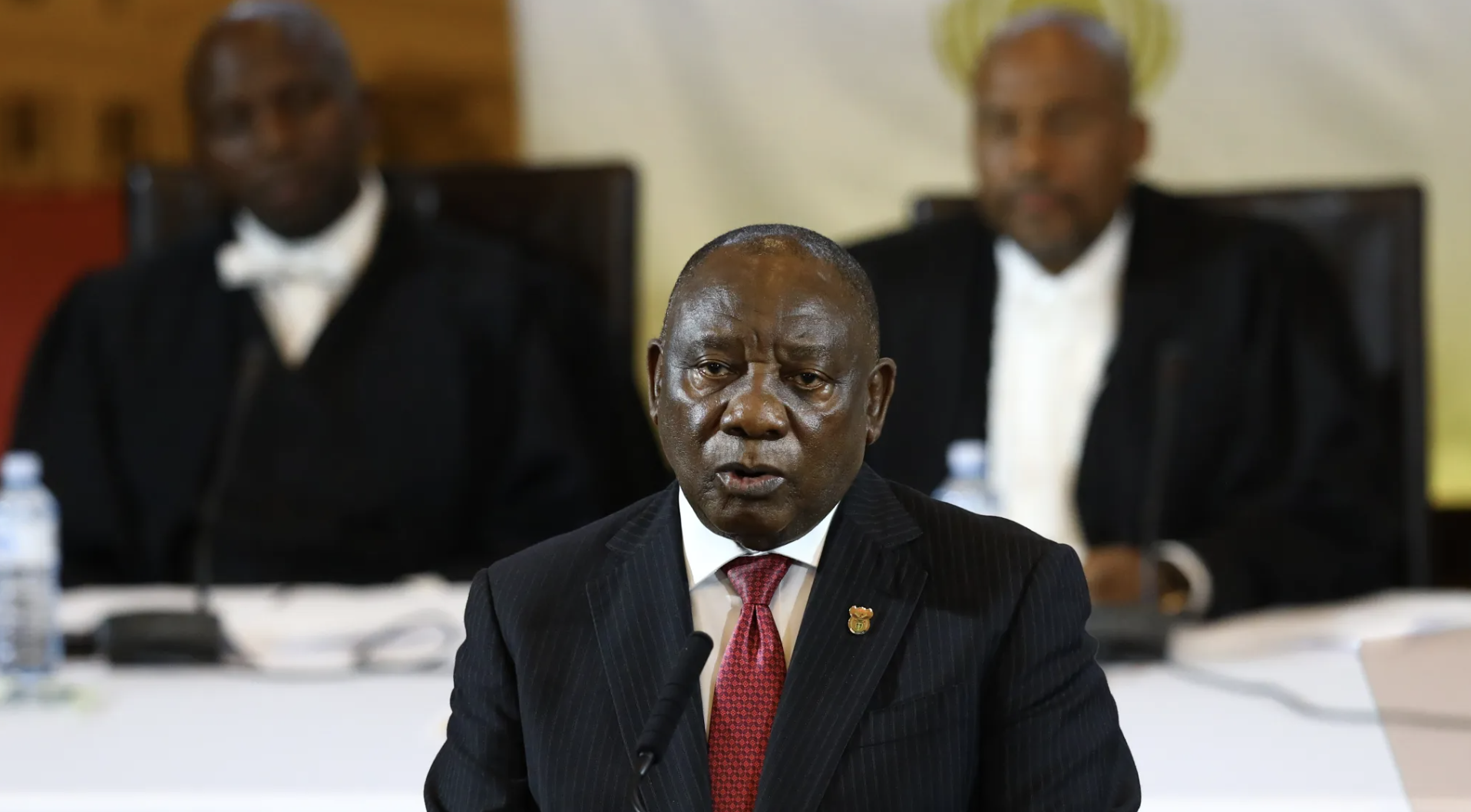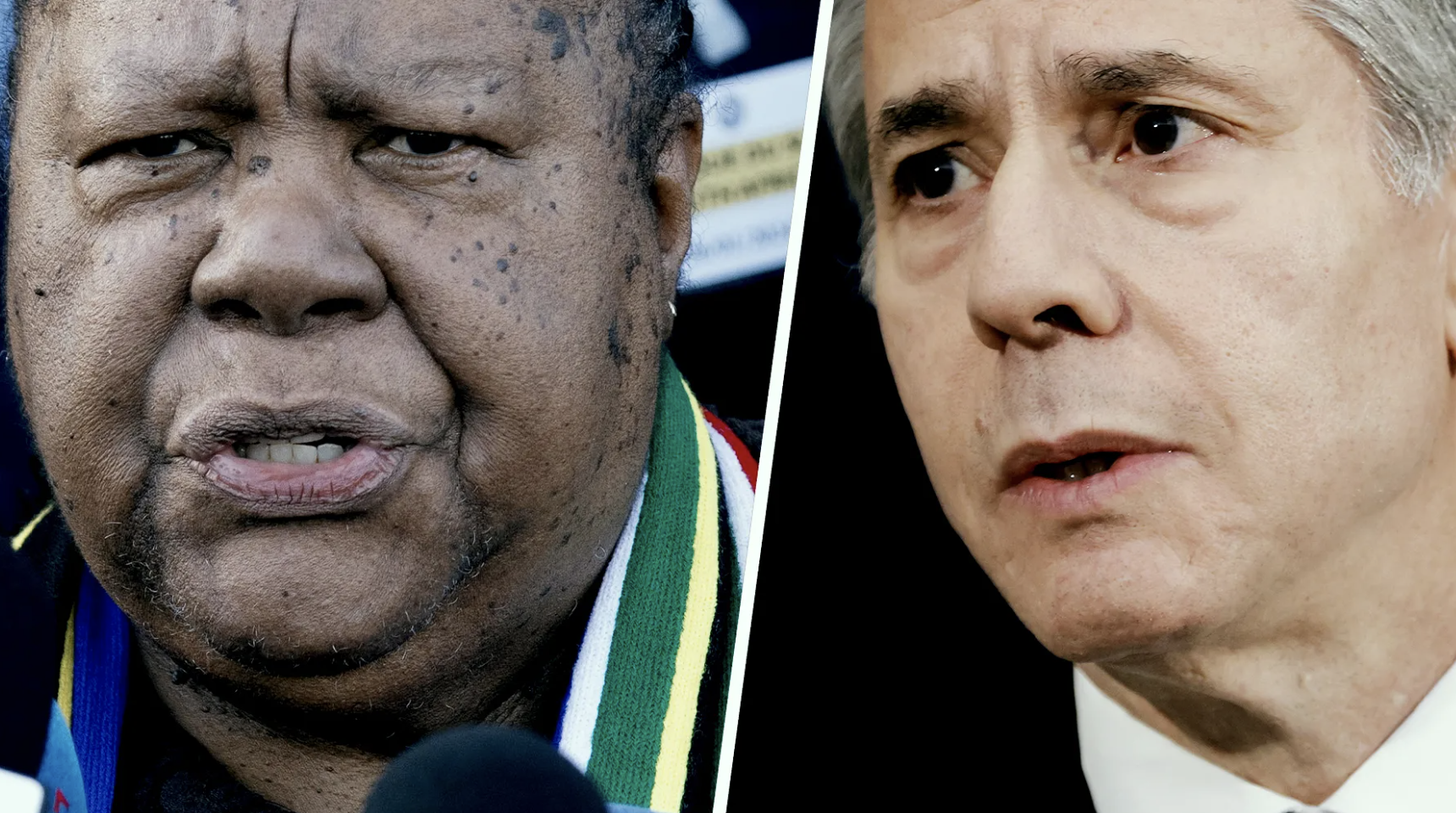News
‘Six Impossible Things Before Breakfast’ — How SA went from Substance to Spin
We all want to live in the country that President Ramaphosa thinks we are living in. Maybe he and his faithful do live there, but the majority of South Africans don’t.

Director, The Brenthurst Foundation

Research Director, The Brenthurst Foundation

Like a grifter down to his last dollar, President Cyril Ramaphosa rolled out his shtick to a weary electorate in a State of the Nation Address (Sona) that showed he has little with which to reignite the ANC’s base.
Lewis Carroll could have been there: “Why,” he wrote in Alice’s Adventures in Wonderland, “sometimes I’ve believed as many as six impossible things before breakfast.”
One such impossible thing we were expected to believe was that rolling blackouts were in their final days. The power supply was stage-managed to this end. At around midday on the day of the address, Eskom announced it had reduced load shedding to Stage 1. It was the best it could do to keep the television sets flickering across the country for the address. In the early hours of the following morning, we were returned to the tender mercies of Stage 4 as the utility made up for this indulgence and then, as the Sona babalas subsided a day later, Stage 6 returned with a vengeance.
Conjuring up a fictional “born-free” called Tintswalo, Ramaphosa tried to paint a picture of a nation that had advanced since the dawn of democracy in the country, providing education, jobs and utilities to the post-apartheid generation.
It was a metaphor that didn’t ring true. “Tintswalo grew up in a household provided with basic water and electricity, in a house where her parents were likely to have lived without electricity before 1994,” Ramaphosa said.
As he spoke, the eThekwini Municipality erected a bank of four JoJo tanks to provide water to communities where the taps had run dry. From the relatively well-off Parkview in Johannesburg, which has had five water outages over the last week, through to Trenance Park in eThekwini, the lived experience with services does not match Ramaphosa’s claims.
If anything, there is a rapidly accelerating breakdown in service provision, with the notable exception of the Western Cape and other enclaves where the opposition rules.
ANC feudal system
Undeterred by the holes in the narrative, Ramaphosa went on: “When Tintswalo entered the world of work, she was able to progress and thrive with the support of the state’s employment equity and black economic empowerment policies.”
He failed to mention that, to benefit from these policies, Tintswalo had to enter into the ANC feudal system, the most reliable — and in many cases, the only — path to advancement in the civil service or benefitting from government contracts.
This is the same path trodden by the adoring, jewel-encrusted ANC MPs in the Sona audience, their jobs and income dependent on their blind loyalty, whether this be to the corrupt Jacob Zuma or the hapless Ramaphosa.
Their Tintswalo is less a child of poverty than a Cape Town hotel of the same name, one whose website describes it as “the epitome of luxury”. Someone in the 14-strong presidential speechwriting cabal might have taken their eye off the looking glass and checked that with Google.
Without irony, too, Ramaphosa was explaining how the ANC government would fix the ANC government. And it was not someone else’s ANC. Never mind that one-third of ANC MPs served in the previous Parliament, or that key ministers — Gwede Mantashe, Bheki Cele, Angie Motshekga, Aaron Motsoaledi … and Ramaphosa himself among them — were part of that regime.
And like Hansie Cronje, someone else made them do it: Ramaphosa was helping them to look, blaming centuries of racial oppression, the Global Financial Crisis and Covid, among others factors — anyone or anything other than himself and those before him.
Ramaphosa spun on undeterred, failing to mention the fact that Tintswalo had to make the Sophie’s Choice between turning a blind eye to corruption or losing the job that fed her family.
There are Tintswalos who have advanced outside of the ANC ecosystem, but they are the exception. The majority of the politically unconnected find themselves unemployed and without the skill set to enter the 21st-century economy, thanks to a degraded education system which is ranked close to the bottom for literacy and numeracy.
A ‘solution’ for unemployment
Ramaphosa admitted as much, saying: “Millions of young people aged 15 to 24 are currently not in employment, education or training. There are many who have a matric, a diploma or a degree who cannot find a job, or do not have the means to start a business.”
Then came his solution: “While economic growth is essential to reduce unemployment, we cannot wait to provide the work that many of democracy’s children need.”
Jobs would not come from a private sector freed from the government’s growing net of regulatory shackles; they would come from the state. Public works programmes and the Presidential Employment Stimulus would save the day.
While these programmes have provided employment opportunities, they are not the sustainable path to dealing with the employment crisis. These are taxpayer-funded jobs and, at some point, Ramaphosa is going to run out of other people’s money.
Completely absent from the address was any vision for how the economy would be turned around or how the massive logistics challenges facing rail and electricity generation would finally be solved.
State Capture 2.0
The less said about Ramaphosa’s claim to have led a crusade against State Capture, the better. While, conveniently, his rivals within the party — Ace Magashule, Zweli Mkhize and Jacob Zuma — have all been excised from the party, they are all free citizens, unencumbered by judicial consequences for their actions.
Zuma, who implemented State Capture 1.0 from the highest office in the land, was not present at the address, probably because he is out there campaigning for his political party, a free man whose ill-gotten assets have not been confiscated.
It is hard to resist the impression that Ramaphosa’s fight against State Capture was of the Chinese variety — a tool to remove and silence rivals — more than a genuine effort to bring judicial consequences to bear.

Even as he spoke, news about State Capture 2.0 — or is that 3.0? It’s hard to keep track — was unfolding as alarming stories about his deputy Paul Mashatile’s wealth accumulation drive emerged.
To recap for those who have missed the story, which has been ignored by ANC-supporting media channels: When Mashatile was Gauteng MEC for economic affairs, 237 hectares of public land were sold off to a housing developer, Safdev Tanganani, for R15-million. After he became Gauteng ANC provincial chairperson, the same plot of land was sold to the Gauteng government for R80-million.
Safdev Tanganani is tied to an associate of Mashatile’s who then paid money to one of his former romantic partners. This company also received a tender from the Gauteng government despite legal advice that this was in violation of the Public Finance Management Act.
Placating the party faithful
There are many more such stories. Deflecting them, ignoring them or lamely asking that the opposition take the allegations to a police station and not to his office, shows that Ramaphosa’s enthusiasm for tackling corruption is not exactly heartfelt.
“We will not stop until every person responsible for corruption is held to account,” said Ramaphosa. Apparently true, unless you are one of his guys.
This was not a Sona about justifying the hard choices behind solutions including cutting off mediocrity, cutting back on state wastefulness and cutting down institutions to balance the books. It was there to placate the party faithful that there is a plan to retain their grip on power, and for Ramaphosa to lead them back to their cushioned seats.
We all want to live in the country that Ramaphosa thinks we are living in. Maybe he and his faithful do live there, but the majority of South Africans don’t.
And the first step of any solution has to be to acknowledge your role in the problem. A failure to do so can only cause further decline. As such, the Sona was notable for its poverty of leadership and paucity of integrity. Rather than taking blame, and picking up the governance pieces as the real Tintswalo would have done, it was an elite exercise in vote capture and the extension of privilege.
While Ramaphosa opted for a sombre tone for most of his address, there were light moments. Like when he promised a new “high-speed” rail line between Gauteng and eThekwini. Even he could not resist chuckling at this proposal. Perhaps he should focus on getting the low-speed trains running first.
This article originally appeared in the Daily Maverick
Photo: Shelley Christians

